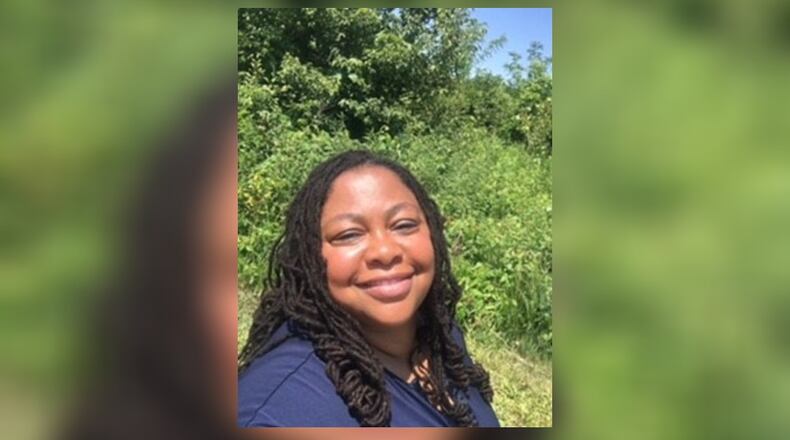“She is a role model to any African-American child, especially considering girls, who are not that high in percentages in the Scientific world, pursuing PhDs,” Sumudu Rajakaruna, Burnett’s student mentor said.
In addition to her passion for education, she’s passionate about teaching her children the Black history lessons she learned while growing up.”
Teaching is something that comes naturally to Burnett, with a son in graduate school, another daughter in college at Ohio State and a 14-year-old still in the house. She finds herself teaching her children the importance of Black history, a curriculum she believes schools don’t adequately teach today.
“Eleven months out of the year, we normally don’t study black history,” Burnett said. “It just gets shoved under the rug. We learn about Abraham Lincoln, George Washington, that’s it.”
Burnette’s mother attended an all-black middle school in the late 1950′s just after the time U.S. started to desegregate classrooms. Burnette learned a great deal of her history from stories that her mother would tell her growing up.
“So my grandmother had to decide whether to send her to a public school, where she could be beaten, she could be shot, where anything could happen,” Burnette said.
Burnett’s mother ended up at Charleston Catholic High School in Charleston, W.Va., where her mother (Burnett’s grandmother) felt that she would be safe, according to Burnett.
Now as a mother to children of her own, she takes it upon herself to make sure she teaches her children the importance of their ancestors and their contributions to society.
So Burnette makes sure her children understand what their ancestors went through just to get an education. She also teaches them about the contributions Black Americans have made to society.
Recently, because of the Black Lives Matter movement, Burnett’s 14 year old daughter, Lydia, has been asking more questions about her history and the racial tensions between African Americans and police officers.
Having conversations with her children like these are important to Burnett, especially more often than just one month of the entire year.
Burnette prays her lessons will help her children be successful and stay safe.
“My major concern is my son. I do not want anybody doing harm to him when he doesn’t deserve it. He’s a very calm, even tempered young man,” Burnett said. “I just worry that he might be in the wrong place at the wrong time, and then there’s no more son.”
Aside from having their mother as a role model, she’s proud her children, especially her daughter Lydia, now have other African Americans, especially women, to look up to.
“Kamala Harris, I think she, and Michelle Obama have put African American females on the map. Because, before, what were we? We’re homemakers. We’re very strong. We’re very good parents. That’s all we get credit for. But now we have a first lady, we have a vice president, and I think that is very important,” Burnett said.
Amidst raising kids and attending college, Burnette also finds time to volunteer once a month at Cross Over Community Development in Dayton, a non-profit supporting immigrants and refugees.
“I think if more people helped each other, the world would be better,” Burnett said. “All I can do is try to make a difference.”
About the Author
